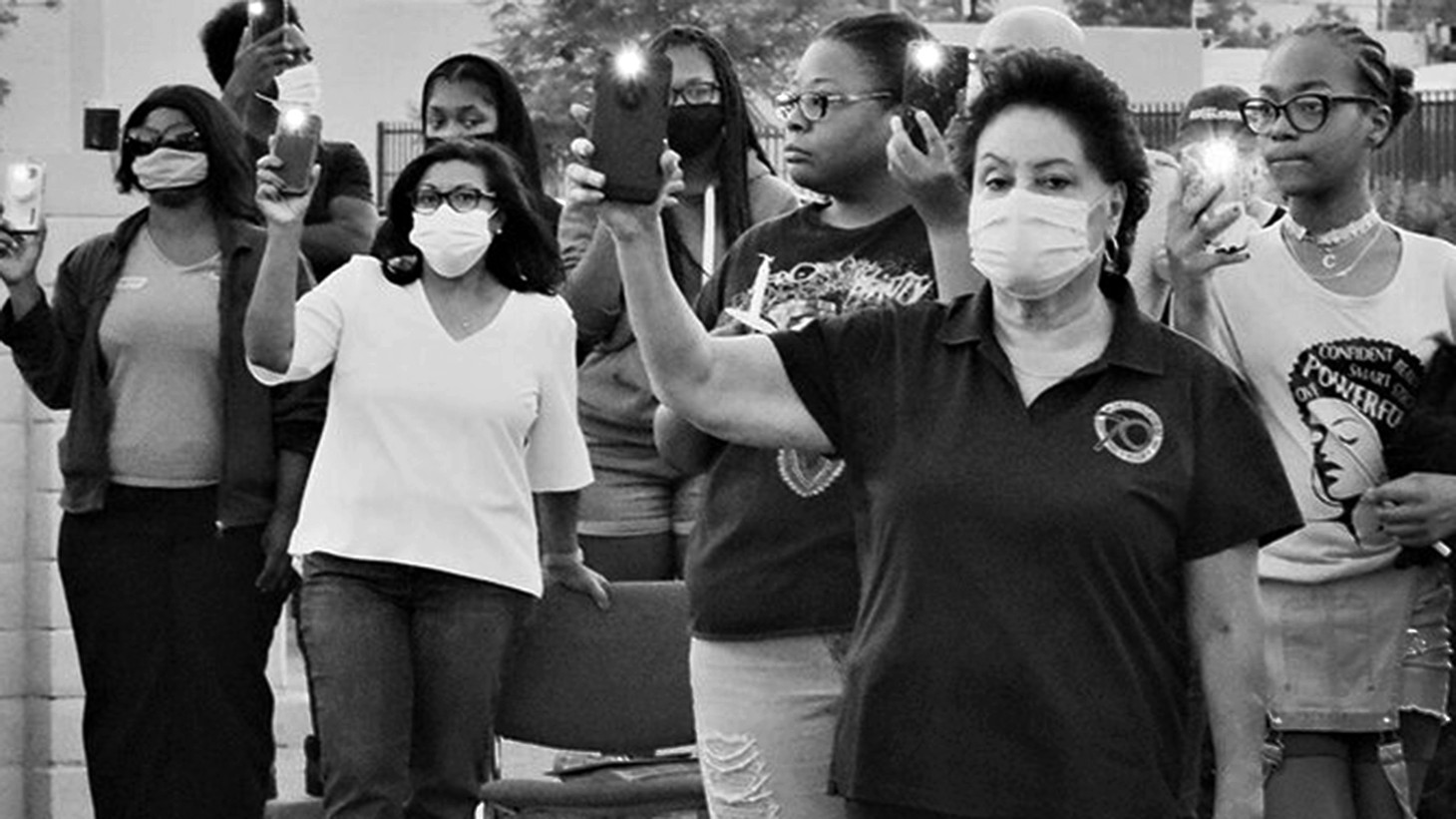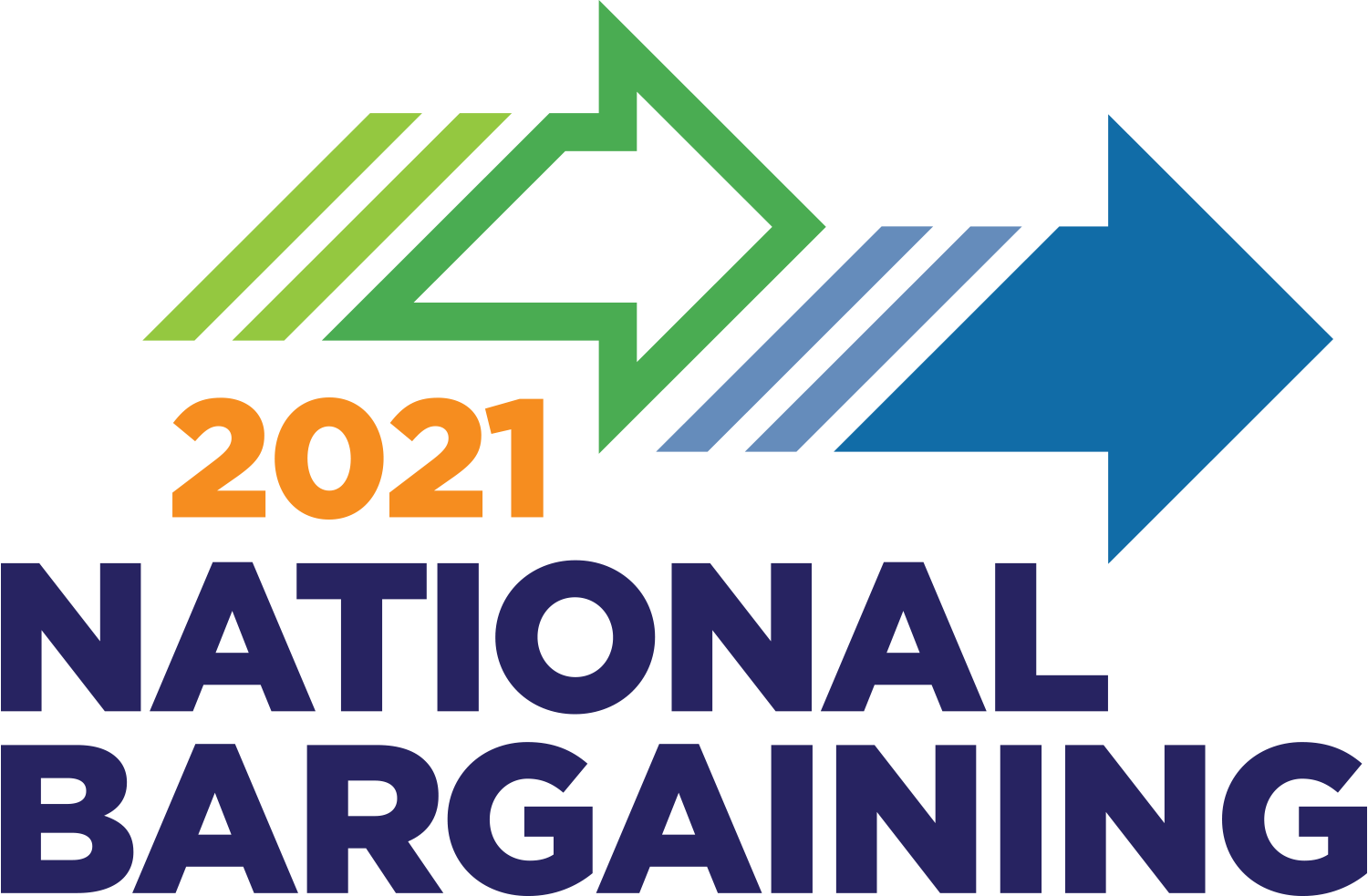
Racial justice is one of several bargaining topics this year between Kaiser Permanente and the Alliance of Health Care Unions. Above, members of United Steelworkers Local 7600 participate in a memorial vigil for George Floyd in June 2020.
Participants outline the scope of their work and prioritize deliverables
Bargaining between Kaiser Permanente and the Alliance of Health Care Unions began in earnest as subcommittee members discussed improvements in priority areas to be included in a new national agreement.
This year, 5 subcommittees are working on proposals related to problem and dispute resolution; staffing, backfill, and the use of travelers; patient and worker safety; racial justice; and economics.
Subcommittee members, meeting for the first time in early May, reviewed their charters and began to outline the scope of their work.
As we emerge from the hardest days of the pandemic, “there is a lot of healing we can do,” said Mena Yaft, service area administrator for Primary Care, Pediatrics, and Urgent Care in the Colorado region.
Yaft was one of many members of the Patient and Worker Safety subcommittee who called national bargaining a prime opportunity to acknowledge the trauma managers and frontline workers experienced during the COVID-19 pandemic. The committee agreed that improving “psychological safety” for workers and patients is their top priority for national bargaining.
Members of the Racial Justice subcommittee discussed ways to combat bias, advance racial equity in health outcomes and promote positive change within Kaiser Permanente and beyond.
“Sometimes we are downgraded because of how we look or how we sound. I want to do everything I can to change that,” said Sandra Flores, a business representative for IUOE Local 501 and the subcommittee’s Alliance co-lead. “We have an incredible opportunity to make real change for those who work and receive care at Kaiser Permanente.”
Members of the Problem and Dispute Resolution subcommittee are charged with streamlining and speeding up the process for settling disagreements and supporting the use of interest-based problem solving. Prioritizing deliverables was an early success for the group.
“I’m proud of how engaged everyone was and how we reached consensus on working agreements,” said Eric Ruperto, program manager for the Office of Labor Management Partnership and the subcommittee’s management co-lead.
For Peter Sidhu, RN, UNAC/UHCP treasurer, the pandemic revealed “long-standing issues” related to staffing, backfill, and the use of travelers – the topic of his subcommittee.
“We realized there are a great deal of flaws in how we approach staffing, how we fill vacant positions, and how we utilize traveler RNs,” said Sidhu, one of 2 Alliance co-leads for the subcommittee.
The subcommittees are following an interest-based process to develop recommended updates to the national agreement. Unlike traditional bargaining where each side takes an adversarial position, interest-based bargaining calls for the parties to identify common issues of concern and work collaboratively to achieve mutually beneficial solutions.
The subcommittees will continue meeting twice monthly through July. The Common Issues Committee, the full bargaining team, is scheduled to meet virtually June 23 to hear updates on the subcommittees’ progress.
